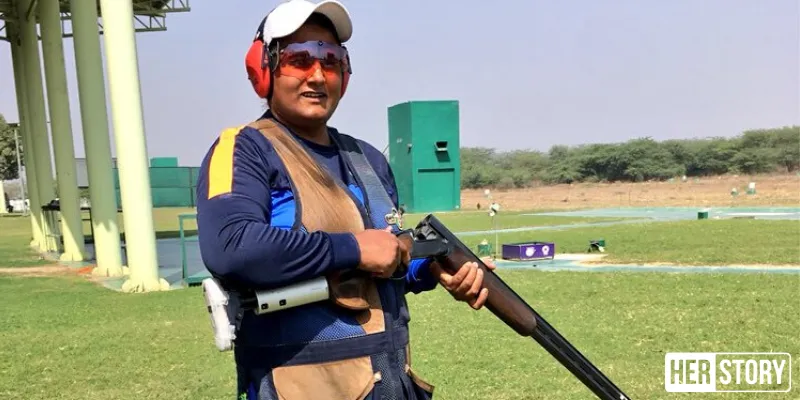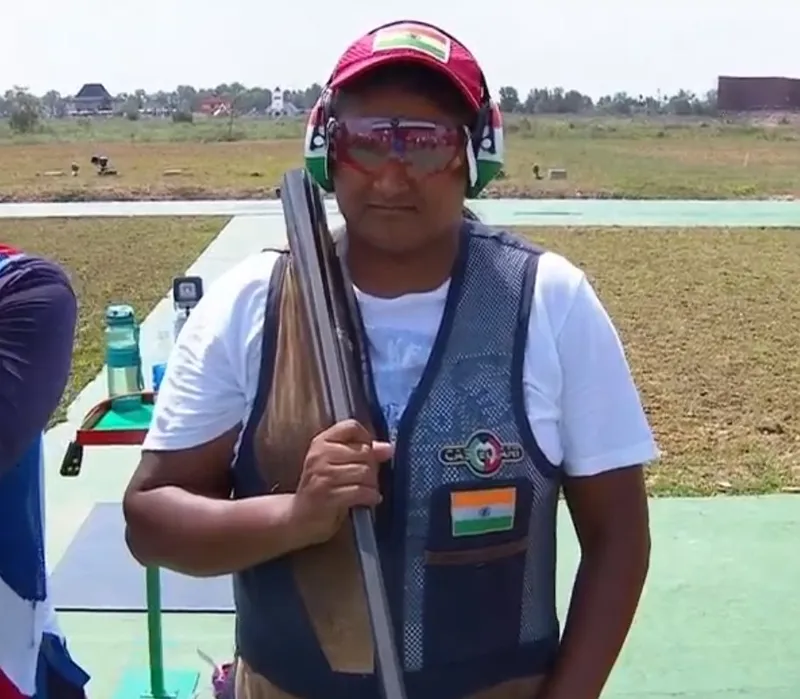How Shah Rukh Khan helped shooter Seema Tomar set her sights on the WC silver medal
Seema Tomar, the first and the only Indian woman to win a silver medal in trap shooting at the World Cup, has had to fight for her success. In an interview with HerStory, she speaks about her journey from a small village to the world stage, and the role Shah Rukh Khan played in her success.
If you have watched the recent Tapsee Pannu-starrer Saand Ki Aankh, then you would know about Indian shooter Seema Tomar, even if you are not a sports fan.
Her life story is nothing short of extraordinary. Hailing from a small village, Johri, in the Baghpat district of Uttar Pradesh, she has broken many barriers to be where she is today. Seema is the first and the only Indian woman to win a silver medal in trap shooting at the World Cup.

A little bit of the credit for that silver is owed to an unlikely person — Bollywood superstar Shah Rukh Khan. Speaking about her win, Seema recounts that, at the International Shooting Sport Federation World Cup in 2010, she had missed the first three targets. She fondly remembers,
“I had made it to the finals for the first time and my hands and legs were trembling. After missing the first three targets I suddenly remembered Shah Rukh Khan’s ‘yeh 70 minute’ dialogue from his movie Chak De! India. I told myself - ‘Seema, these 30 minutes will never come back in your life, so do you want to look back and cry or look back with joy’. I instantly felt this energy and I changed my game.”
Seema is also a fan of Akshay Kumar and watches the actor’s movies regularly. She is particularly fond of films based on real-life, she shares.
Also Read: The Untold Story of Seema Tomar, India's Very Own Trap Shooter from UP
Born in a conservative, patriarchal family, where women were not allowed to step out of the confines of the house, Seema’s journey was made possible by her mother, Prakashi Tomar, and aunt, Chandro Tomar, who are popularly known as shooter dadis (grannies). Now, at 82 and 87, Prakashi and Chandro are India’s oldest sharpshooters, having won several medals and accolades.
Speaking of their contribution to her success, Seema says,
“It wouldn't have been possible without them. I was interested in sports from an early age. They came into it (shooting) at that age, so that the kids could participate and get jobs later. They didn't let age come in the way, that was a very big inspiration for me.”
Seema’s niece, Shefali, (Chandro’s granddaughter), her sister, Rekha, and several others, including the boys in the family, too, have taken to shooting. “Ours is the largest family of shooters with so many children involved in the sport,” laughs Seema.

Their neighbours and relatives initially mocked and ridiculed them, but their success helped changed the community’s mindset.
While things have improved somewhat in Johri as far as gender equality is concerned thanks to the Tomars, Seema says there is still a long way to go for most Indian villages.
“These things [about gender inequality] are still there. In my village, things have changed to an extent, but in most other villages this thing is still there — that only boys can go out, or play sports, or eat certain things. Girls are still shackled to a large extent,” says Seema.
While this problem is perhaps more extreme in rural India, urban India is not entirely alien to gender inequality. Several women, both in rural and urban India, still have to break multiple barriers every day, including those in their family, their immediate society, and their professional world. So what is Seema’s message for them?
“I would like to say that you need to have that passion in you, whether it is for sports, academics, or other fields. What is foremost is how strongly you want something. Then, you should speak to your family and if they are not keen then try to convince them.
My message to parents would be, if your child wants to get into some activity, at least give them a chance. And, once they get a chance, you never know what that child can achieve and how far they can go.”
(Edited by Athirupa Geetha Manichandar)
Also Read: The Untold Story of Seema Tomar, India's Very Own Trap Shooter from UP







